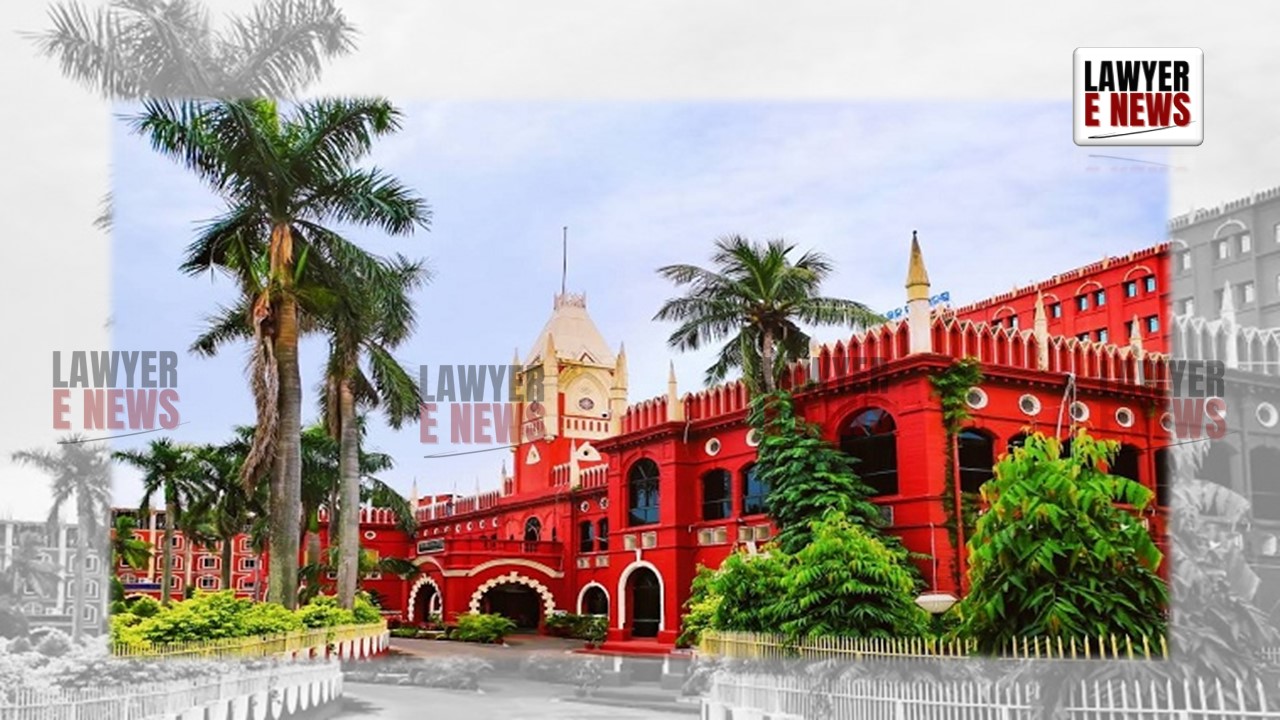-
by Admin
15 February 2026 5:35 AM



In a significant ruling, the Orissa High Court set aside the appellate court's judgment and restored the decision of the trial court in a land dispute between the legal heirs of Maguni Das (plaintiff) and Harekrushna Das (defendant). Justice Sashikanta Mishra, presiding over the case, reaffirmed that the Tahasildar's authority to correct the Record of Rights (RoR) is limited to changes arising after its publication. The court underscored that disputes based on facts prior to the RoR's finalization cannot be used to challenge a landholder’s title through mutation proceedings.
The case originated when the plaintiff, Maguni Das, filed a suit seeking demarcation of land and a permanent injunction against the defendant, Harekrushna Das. Maguni claimed that his paternal property was wrongfully altered by the defendant, who attempted to amalgamate portions of the plaintiff's land through mutation proceedings initiated before the Tahasildar in 1997. The plaintiff contended that the Tahasildar’s decision to alter the RoR was void since the RoR had already been finalized in 1972. The trial court ruled in favor of the plaintiff, holding that the Tahasildar had no authority to amend the RoR under such circumstances. However, the appellate court overturned this decision, prompting the plaintiff’s legal heirs to file a second appeal.
Tahasildar’s Authority: Tehsildar Lacks Power to Alter Old Land Records, Says Orissa High Court. The High Court clarified that the Tahasildar's power to correct the RoR is strictly governed by Rule 34 of the Orissa Survey and Settlement Rules. The court ruled that corrections to the RoR can only be made based on facts that arise after its publication. In this case, the defendant’s attempt to alter the RoR, which had been finalized in 1972, by invoking facts from the 1960s was deemed invalid. “Once the Record of Rights is published, the Tahasildar lacks jurisdiction to effect any correction thereto based on pre-existing facts,” the court noted.
Validity of the Plaintiff’s Title: The court reaffirmed the plaintiff’s legal title over the disputed land, which had been recorded under the 1972 RoR. The defendant, who claimed portions of the land under a 1959 sale deed, had never previously challenged the RoR or sought legal recourse to correct it within the statutory time limit. The court highlighted that "the defendant’s failure to act on his claim at the appropriate time" invalidated his subsequent attempt to alter the land records via mutation proceedings.
Justice Mishra invoked the Supreme Court's ruling in Anathula Sudhakar vs. P. Buchi Reddy to delineate the principles governing suits for injunctions and title disputes. The court stated that where a plaintiff has clear title and possession, a simple suit for injunction is maintainable. In contrast, if the title is in dispute or under a cloud, the plaintiff must seek a declaratory relief. In this case, the defendant’s failure to establish a prima facie right over the land led the court to conclude that there was no valid cloud on the plaintiff’s title, and hence, the suit for injunction and demarcation was maintainable.
Justice Mishra emphasized that the plaintiff’s lawful possession, as recorded in the 1972 RoR, was not successfully challenged by the defendant. The trial court had correctly ruled that the Tahasildar’s order to alter the RoR, without involving the plaintiff or his legal heirs in the mutation proceedings, was void. "The so-called dispute raised by the defendant to the plaintiff’s title, based on void orders by the Tahasildar, cannot by any stretch of imagination be treated as raising a cloud over the plaintiff’s title," the court observed.
The court further criticized the appellate court for reversing the trial court’s judgment without adequately discussing the evidence on record. The High Court pointed out that a mere denial of title by the defendant, without proving a better title, does not compel the plaintiff to seek a declaratory judgment.
This judgment reaffirms the legal principles surrounding the Tahasildar's limited authority to alter land records and underscores the importance of timely legal action to dispute land titles. By restoring the trial court’s judgment, the Orissa High Court has sent a clear message regarding the protection of lawful landholders from arbitrary changes to their property records through administrative procedures. The decision is expected to reinforce the procedural safeguards in land title disputes across the state.
Date of Decision: 6th September 2024
